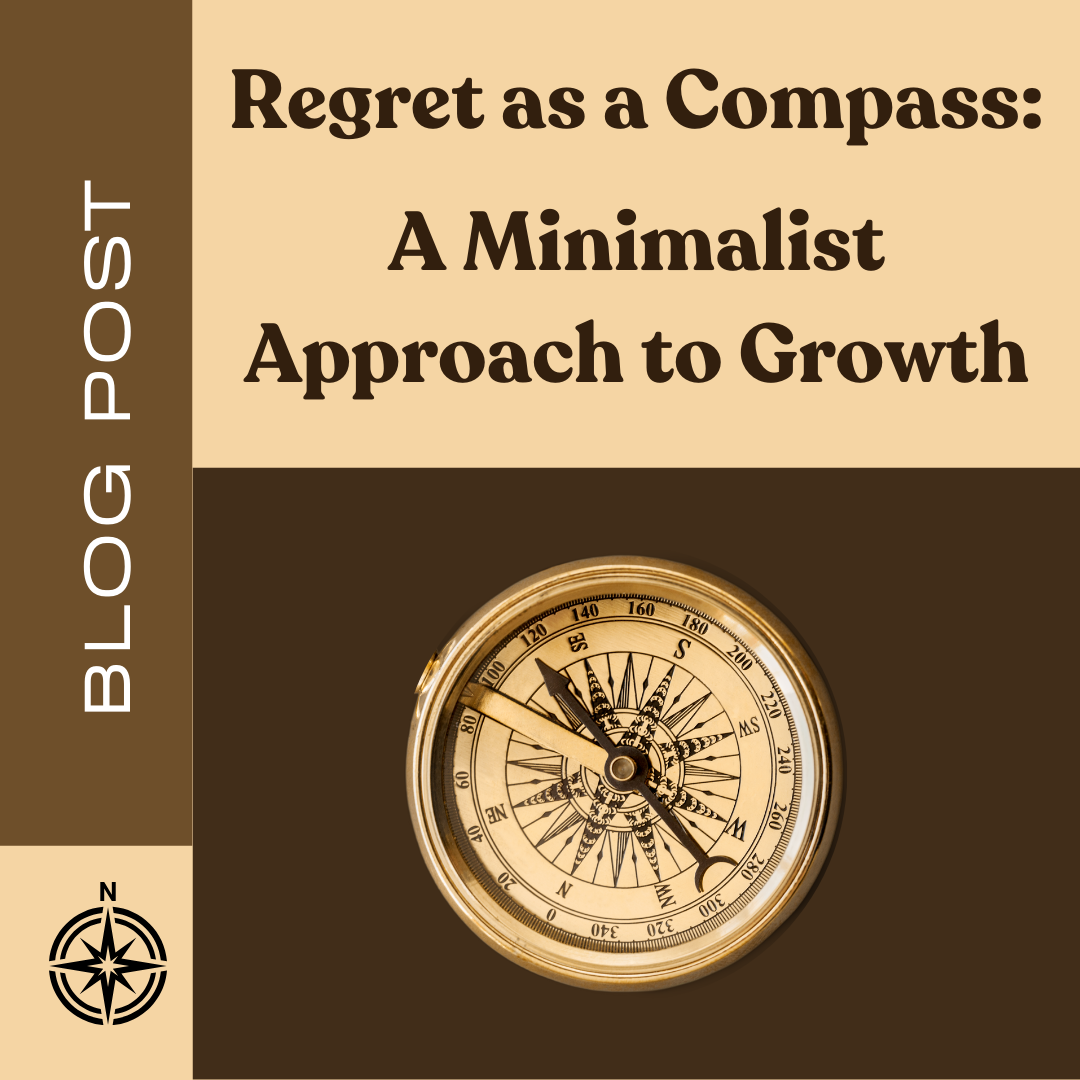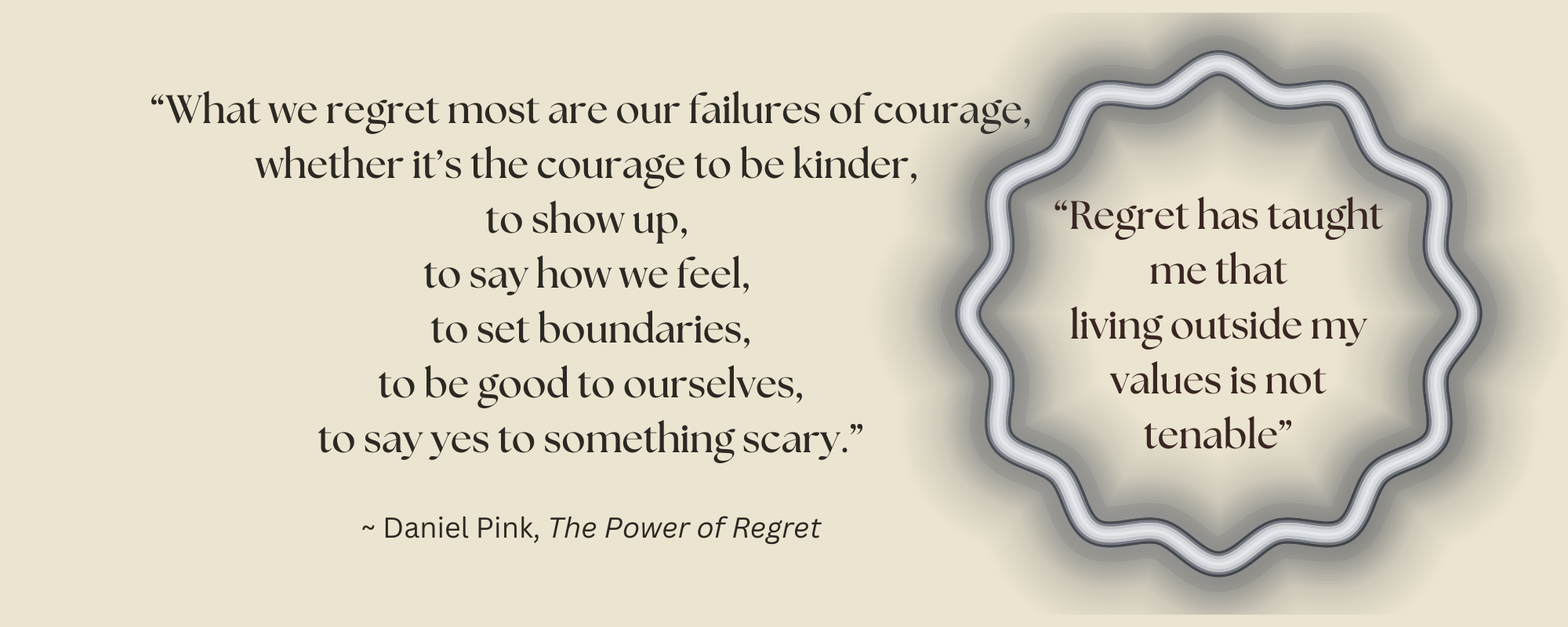Regret as a Compass: A Minimalist Approach to Growth
Regret is often seen as a heavy burden to suppress, avoid, or overcome. But what if, instead, regret is a signal? A guidepost showing us what truly matters?
Blog Post: Regret as a Compass: A Minimalist Approach to Growth
Daniel Pink’s The Power of Regret challenges us to rethink this emotion, highlighting how it fuels self-reflection and smarter decision-making. Regret, he argues, isn’t about dwelling on the past—it’s about using it to shape a better future.
As a professional who has navigated multiple career shifts, embraced a minimalist lifestyle, and adopted an agile mindset, I’ve learned that regret doesn’t have to be a weight, rather it can be a compass.
The Nature of Regret: A Hidden Teacher
Psychologists define regret as a self-reproach for a perceived mistake (McQueen, 2024), distinguishing it from guilt, disappointment, or sadness. But unlike these emotions, regret has a unique function: it invites us to ask why we feel this way—and what we can do differently moving forward.
Regret, in this sense, is an essential part of growth. It shows us what we once valued, what we failed to honor, and what we might prioritize next.
Learning from Regret: Quote from Daniel Pink, The Power of Regret
Rethinking Regret: A Minimalist’s Approach
Most people see regret as something to avoid, but minimalism teaches us to declutter not just our homes, but our minds and emotions. Keeping this in mind, we can adopt another approach.
Traditional view: Regret is a burden, something to suppress.
Minimalist view: Regret is a teacher, pointing to what is truly meaningful.
Action: Let go of unnecessary guilt while embracing the lessons that align with your deepest values.
For me, the biggest regrets weren’t about what I did, but why I made those choices in the first place. In my prime career years, I made a few big decisions that, in hindsight, were misguided and wasteful. One of those was moving too many times. But when I reflected on why I made those choices, I realized the issue wasn’t just poor decision-making—it was a lack of clarity. I didn’t yet have a vision for the life I wanted to create for myself, my family, and the broader world.
Minimalism gave me that clarity.
Common Regrets of Middle-Age Professionals
As professionals, we accumulate more than possessions—we collect expectations, habits, and commitments that may no longer serve us. By mid-career, many professionals share similar regrets:
Career: Staying in unfulfilling roles, fearing change, or not taking calculated risks.
Work-life balance: Prioritizing work over health, relationships, or passion projects.
Personal growth: Neglecting creativity, personal passion, continuous learning, or purpose-driven work.
I’ve changed careers four times— from programming to teaching, to project management, to counseling and psychotherapy— and then back to project management. Some might see this as indecision, but I see it as evolution. Each pivot was necessary, shaping who I am today. The knowledge I gained in each field enriches my life and leadership, giving me a unique, multi-dimensional perspective.
The only real regret would have been staying stuck in a career that no longer fit.
Regret: Being Stuck in a Career that No Longer FIt
Decluttering Emotional Baggage: How to Process Regret
Minimalism isn’t just about decluttering physical spaces—it’s about removing emotional clutter so we can focus on what truly matters. Here’s how I’ve learned to process regret:
Reflection: Identify which regrets align with deeper values and which should be released.
Acceptance: View regret not as failure, but as wisdom gained.
Action: Make intentional, minimalist-inspired changes that align with your vision.
For example, after embracing a minimalist lifestyle, I eliminated decision fatigue from my daily life:
I cook most of my meals and shop at familiar grocery stores, buying only what I need.
I borrow books from the library instead of buying them.
I repair instead of replacing personal or household items.
When visiting a shopping mall with friends, I treat it like a museum—admiring the displays without the urge to buy something or take anything home.
These small, deliberate choices free up mental space for what truly matters.
Moving Forward: Designing a Future with Fewer Regrets
So, how do we move forward without accumulating new regrets? Here’s my answer:
By adopting an agile, minimalist mindset:
Agility: Life isn’t static. Deliver, test, iterate, and adapt. Every experience is a learning cycle.
Intentionality: Align your daily decisions with long-term meaning and fulfillment.
Simplicity: Cut the noise. Focus only on what enriches your life and others.
As an agile coach, I often remind teams: to stay focused on the goal, deliver value early, learn from each iteration, and continuously improve. The same principle applies to life. Instead of fearing regret, we should treat life as an ongoing experiment—where each decision refines our path forward.
Conclusion: Regret as a Guide, Not a Burden
Regret isn’t about looking back—it’s about making the next best decision forward.
By embracing regret rather than avoiding it, we unlock the wisdom to live with greater clarity, purpose, and fulfillment.
So, instead of asking “What if?” Start asking “What now?”
How do you move forward without accumulating new regrets?
References
Pink, D. H. (2022). The power of regret: how looking backward moves us forward. Riverhead Books.
McQueen, P. (2024). Making Sense of Regret (pp. 11–39). Oxford University Press. https://doi.org/10.1093/oso/9780197651384.0



